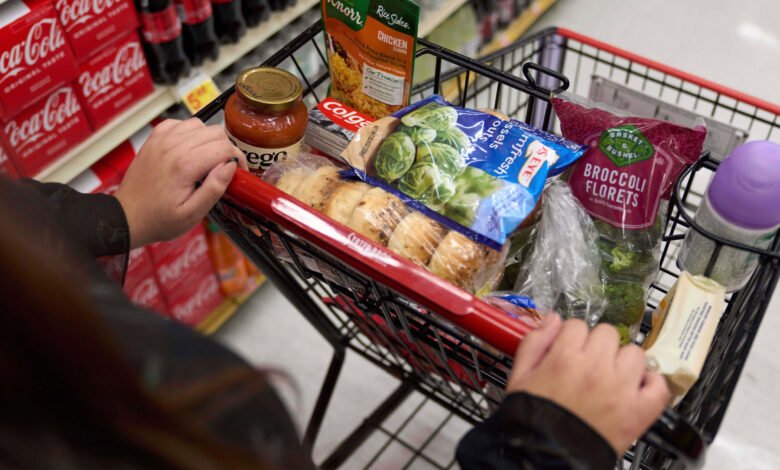Advocates warn of ‘No Meal November’ as SNAP funding dwindles

WASHINGTON – The nation’s primary food aid program will run out of funding at the end of the month, leaving tens of millions of people without help unless the Republican-controlled Congress and the Trump White House reach a deal to fund the government.
“We’re going to run out of money in two weeks,” said Brooke Rollins, the secretary of the Department of Agriculture, which oversees the food program, formally called the Supplemental Nutrition Assistance Program. The program, known widely as SNAP, is an anti-hunger program created in the 1960s.
The acting head of the Food and Nutrition Service, a sub-agency within Agriculture that manages SNAP, said in a mid-October letter that “if the current lapse in appropriations continues, there will be insufficient funds” to pay full benefits to the 42 million people nationwide who use the program.
“Eight hundred and fifty thousand SNAP recipients in New Jersey are potentially facing ‘No Meal November,’” Adele LaTourette, assistant vice president of policy and advocacy at the Community FoodBank of New Jersey, said in an interview with NJ Spotlight News.
November, in particular with Thanksgiving, is known for massive portions and overeating, LaTourette said, adding “So, the irony is thick to say the least.”
For the Community FoodBank of New Jersey, present in 11 of the state’s 21 counties, to meet demands for food without SNAP funding will be a “virtual impossibility,” said LaTourette, who has worked in the field for more than 40 years.
“It’s just a terrible time,” she said. “I’ve been doing this work my entire life.”
The ongoing government shutdown, three weeks in and without an end in sight, has thrown the day-to-day operations of several federal social assistance programs, including SNAP and the Women, Infants, and Children, or WIC, program, into flux.
Food programs for the vulnerable are far from the only federal systems at risk of running out of money as the shutdown, now in its 21st day, continues. Education programs, for example, that rely on federal funding will also be curtailed Nov. 1 in New Jersey, unless Congress passes and President Donald Trump signs new funding legislation into law.
The Trump administration has laid off or tried to dismiss thousands of federal workers and targeted cuts at liberal-leaning pockets of the country, while Republicans and Democrats on Capitol Hill are at a stalemate over how to reopen the government. Republicans are siding with the White House, while Democrats want more healthcare funding.
In a statement Friday, Gov. Phil Murphy’s office said SNAP benefits are secure through Oct. 31 and WIC benefits will continue through Nov. 10.
“However, we are deeply concerned that federal actions may compromise access in November,” Murphy’s office said, adding that without a new injection of federal money, benefits could be halted, adding that about 900 WIC centers in the state could be hurt “by continued federal funding disruptions.”
State agencies are in close contact across New Jersey with the retailers who accept SNAP payments and WIC centers, officials said.
“Most of our pantries see people who are often working, or at least have been working and just can’t make it from paycheck to paycheck.” — Elizabeth McCarthy, president and CEO of Community Food Bank of New Jersey
Contacted by NJ Spotlight News, the agriculture department’s press office issued an automated reply.
“Due to staff furloughs resulting from the Radical Left Democrat shutdown, the typical monitoring of this press inbox may be impacted. We ask for your patience as remaining staff works diligently to field your requests. As you await a response, please remember these delays could have been avoided had Senate Democrats supported the clean Continuing Resolution to fund the government,” the statement, an emailed reply to questions, read. Clean ‘Continuing Resolution’ is a reference to the Republican proposal to restart the government.
In an Oct. 16 letter to the state’s congressional delegation, the heads of New Jersey’s five food banks called SNAP the “is the single most effective tool our nation has to fight hunger” and said food banks are facing “record levels of demand.”
“The federal program provides nine times the amount of food distributed by all New Jersey food banks combined,” the letter said. “If SNAP benefits are delayed or reduced, families across the state will face impossible choices, and our network will face an unsustainable surge in need.”
Deepening threats to the future of SNAP are provisions of a new Republican budget law that will cut about $186 billion, or roughly 20%, of the program’s budget over the next decade and require stringent requirements for people who want benefits.
Daily SNAP benefits average $6 per day per person — not enough to buy an inexpensive meal anywhere in New Jersey.
Jamie McKnight, deputy director of Rolling Harvest Food Rescue, which provides produce to hungry people in Bucks and Montgomery counties in Pennsylvania, as well as Mercer and Hunterdon counties in New Jersey, said demand has increased during the shutdown.
“We’ve seen the numbers just increasing as the days go on,” McKnight said by phone. “We are now serving more people than we were during the pandemic.”
Many of the people who rely on donations from food banks and groups like McKnight’s have jobs and houses, food advocates said. But as those costs have climbed, they turn to food banks to get by, she said. “And as rent increases, people have to make a decision about what they’re going to spend money on.”
McKnight added: “Food pantries will tell you they’ve never been busier.”
Separate from funding for the SNAP program, food donations from USDA to the Community Food Bank of New Jersey, which provides about 90 million meals in the state every year, have dropped about 45% since January, said Elizabeth McCarthy, the group’s president and CEO.
“Literally a truck that pulls up to our warehouse and unloads it. That food had gone down,” McCarthy said in an interview with NJ Spotlight News. To maintain distribution, the food bank has had to lean on donations and food it buys, she said. “And so therefore, for us to keep our distribution at the same level, it’s meant, increasing the donated and purchased food.”
The food bank recently received a request for an emergency distribution of food for Transportation Security Administration staff, airport security workers, during the shutdown, McCarthy said.
Unhoused people or those struggling with addiction make up the minority of people who come to the food banks McCarthy leads, she said.
“Most of our pantries see people who are often working, or at least have been working,” McCarthy said, “and just can’t make it from paycheck to paycheck.”
“We frequently hear people who say ‘I never thought that I would be here,’” she said.
Credit: Source link







